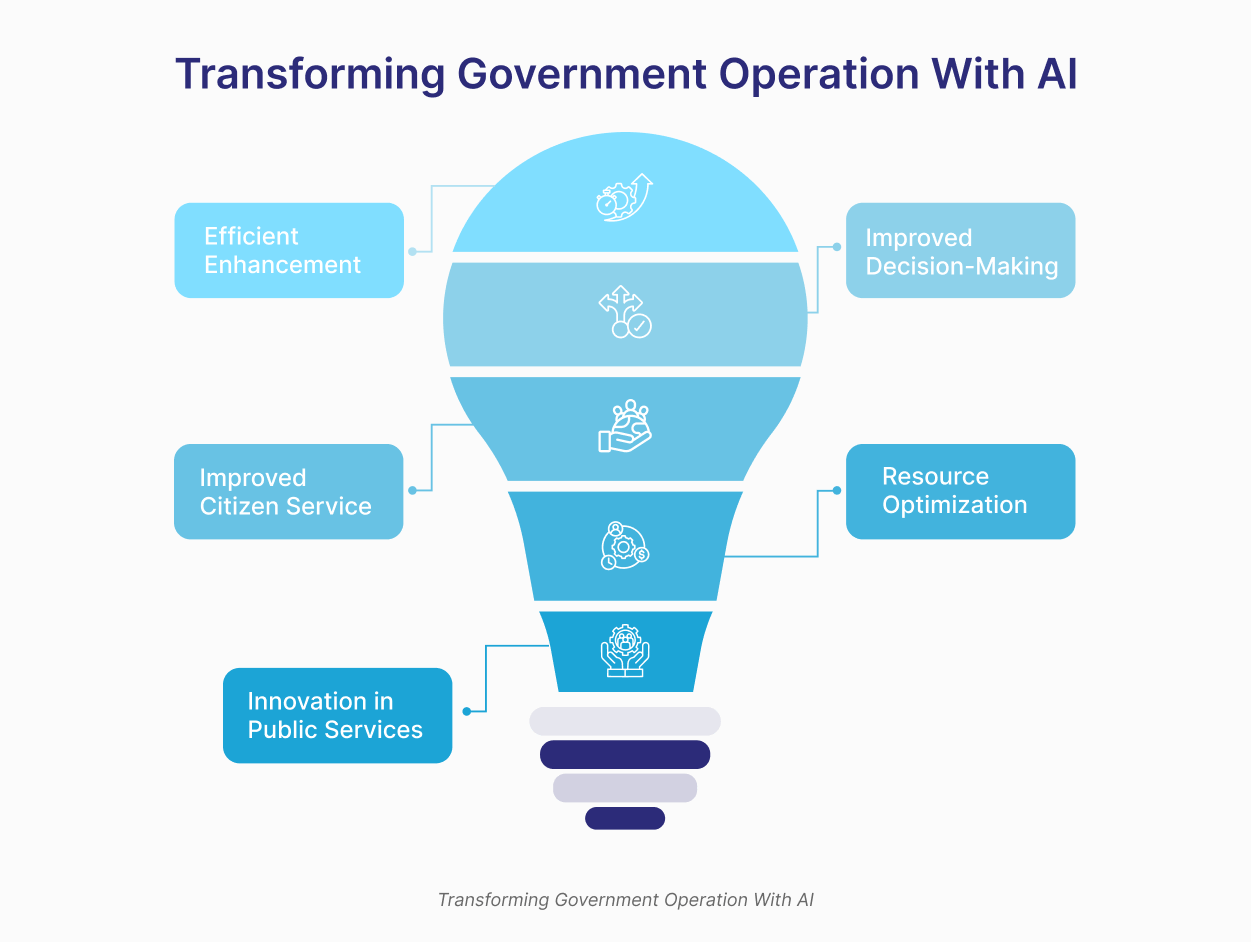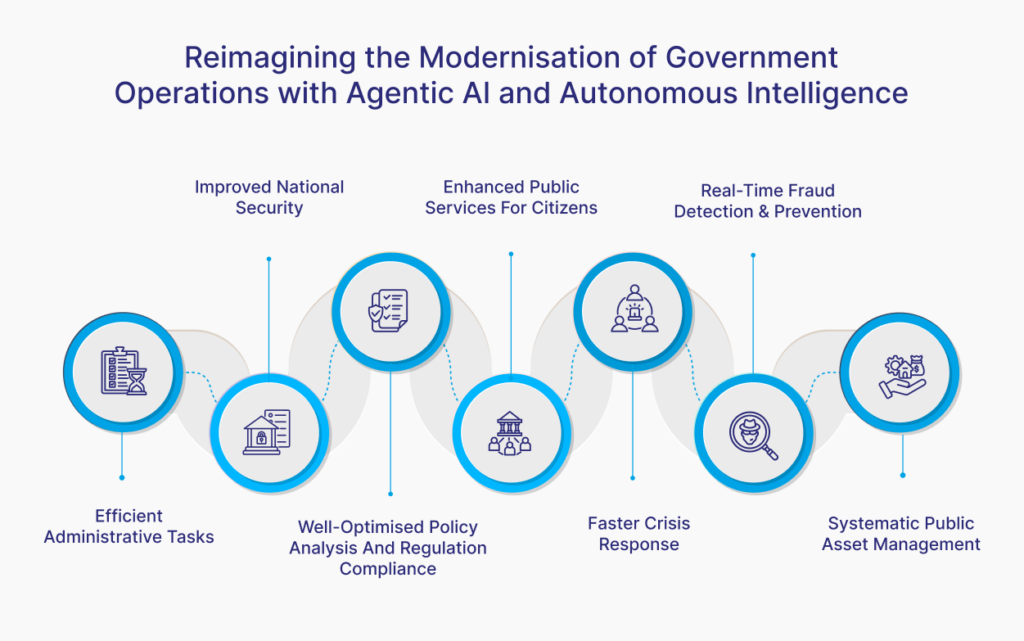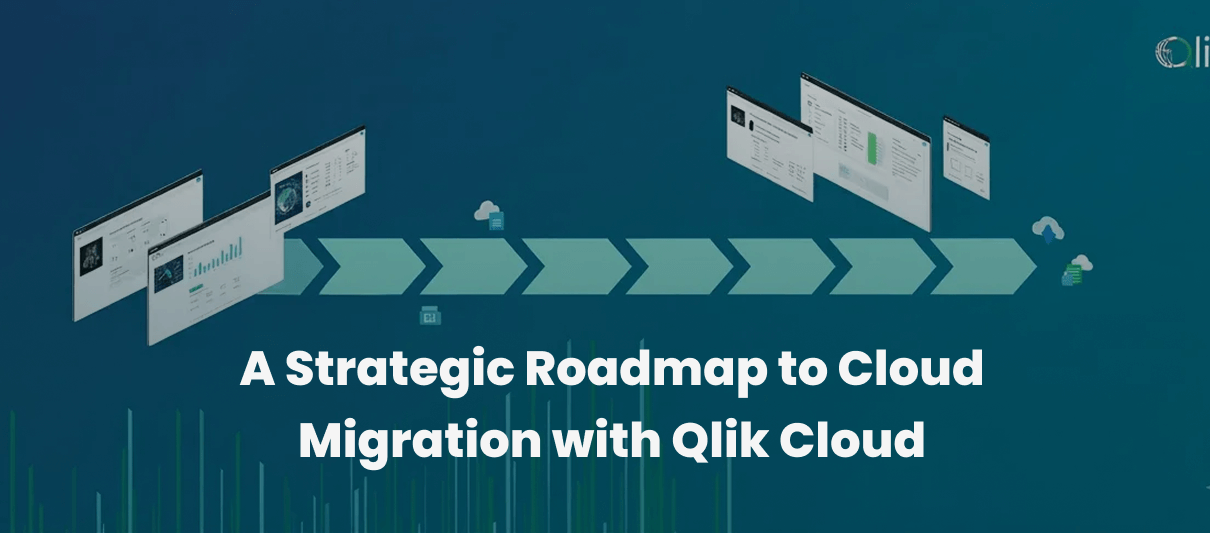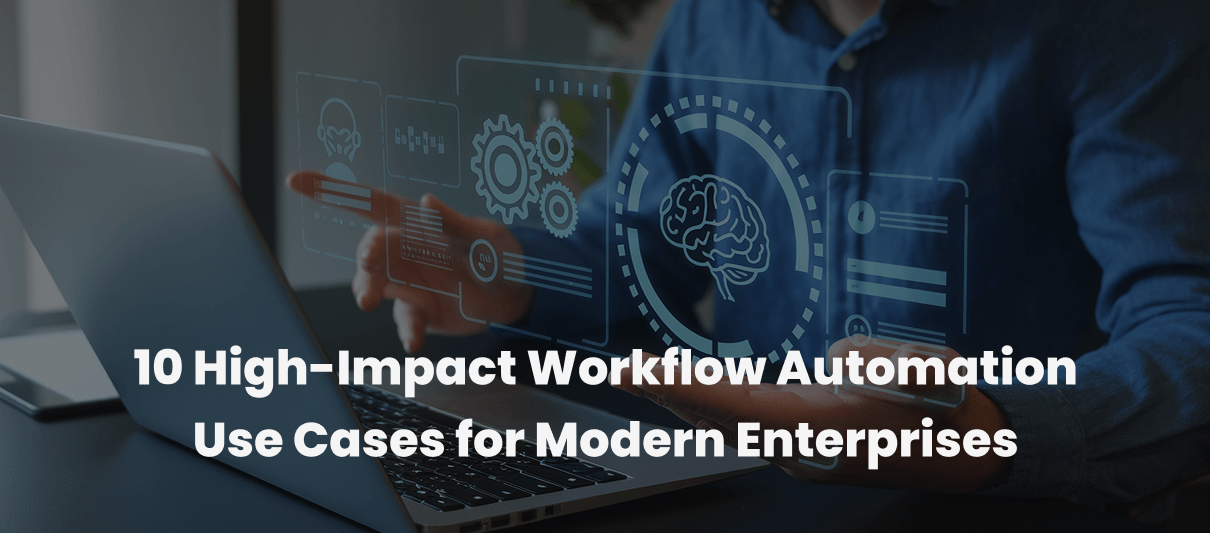Modernising Government Operations with Agentic AI and Autonomous Intelligence
Introduction
Artificial intelligence, unlike earlier days, does not just execute tasks upon instructions–it thinks, learns, and adapts. It evolves according to the organisational needs across industries. Agentic AI is one such latest version of artificial intelligence that works autonomously, and companies and individuals can use it to streamline their performance.
While discussing the economic potential of generative AI, McKinsey mentioned that agentic AI and autonomous technologies can add a financial value equivalent to the range of $2.6 trillion and $4.4 trillion annually to the global economy by 2030. So, from this impressive number, it is evident that agentic AI is here to stay, help and evolve over time. Anyways, as the use of agentic AI is quite visible in diverse business industries, the possibility of utilising agentic AI in government is a crucial matter of discussion. Indeed, it has the potential to turn the government services into more scalable and smarter solutions, but without the right steps followed or proper understanding of its mechanisms, the outcome can’t be driven.
So, this blog is here to assist readers in understanding the importance of using agentic AI for citizen services and government and how it helps to modernise government services.
The Significance of Agentic AI in the Government Sector
Powered with an integrated system of advanced AI models and autonomous components, agentic AI is a recent technological advancement. It comes with a self-directed system that can perform tasks, make decisions, and pursue goals autonomously with minimal or no human intervention. Depending on real-time data, learned experiences and changing environments around, agentic AI can be really helpful to make complex decisions and act upon them. This makes it indispensable for today’s government sector.
Back in earlier days, government operations were supposed to be run with conventional methods, which used to require less technological knowledge, but were time-consuming and labour-intensive. Nowadays, amidst the emerging trends of using technology across all industries, the government sector, along with diverse new-age techniques, is also considering utilising agentic AI and autonomous intelligence. As they ensure speed, accuracy and efficiency in operations, it is critical for the government authorities to implement agentic AI to its best potential.
Governments often face challenges in performing their operations while coping with the rising expectations of citizens. Budget limitations, lack of qualified human resources, inability to apprehend complex policies and regulations, etc., often slow down a public organisation’s work process, eventually leading to citizens’ distrust and outrage towards them. Digital transformation initiatives couldn’t even fill the gaps completely, as they mostly work under strict and definite rules requiring human oversight for the best outcomes. Nevertheless, the adoption of agentic AI and autonomous intelligence can resolve this disturbing scenario in public offices with their smartly integrated independent systems.

In this context, it is important to note that implementing agentic AI in the public sector has diverse use cases and requires strategic approaches. The next segment of the blog highlights them.
Reimagining the Modernisation of Government Operations with Agentic AI and Autonomous Intelligence: The Use Cases
With the liability of ensuring well-being, convenience, and security of citizens, the government is required to stay accountable in front of the people. Relying only upon manual work processes and tools may not serve that purpose in today’s era. For this, agentic AI, with a greater autonomy and high-tech features combining NLP and ML technology, is paramount. Here are the major agentic AI use cases in government operations that unlock a new dimension of using artificial intelligence in government.

Efficient administrative tasks:
From data entry, document processing and verification to routine correspondence, form filling and form submission assistance, etc.- the government administrative tasks require significant effort and time. Although regular digital systems can speed up the process, they lack the efficiency to handle the natural variations and exceptions that are common in the public sector. Agentic AI meets these gaps, making the government more flexible and smarter.
Improved national security:
Along with a wide array of administrative tasks, ensuring the security of the citizens, public assets, and environment is always a priority for the government. With the help of robust agentic AI technology, tasks like monitoring noteworthy movements, regulating resource inventories, securing national assets, etc., become faster and more efficient. This brings readiness into government systems. Moreover, understanding real-time requirements, agentic AI can help to employ personnels in different places according to the rigour of the challenges.
Well-optimised policy analysis and regulation compliance:
Analysing policies is a crucial part of maintaining national security and international political relations. A huge pool of data needs to be churned into actionable insights to develop and analyse policies under a government. Agentic AI technology helps in making faster and evidence-based policy decisions, reducing the complexities of data handling tasks. Moreover, it guides authorities to effectively manage regulatory compliance among citizens.
Enhanced public services for citizens:
As public services for citizens involve different departments and processes, coordination challenges often come up that impede operational efficiency of the services, hampering public satisfaction. Also, manual documentation and processes cause delays and inconsistencies in service delivery. Implementing agentic AI in the public sector streamlines the overall public service delivery ecosystem. Thus, utilising artificial intelligence for citizen services and government proves to be a game-changer.
Faster Crisis response:
Offering prompt attention and care to its assets and citizens during emergencies is a primary responsibility of the government. In such a crisis scenario, for example, during a natural disaster or a public health concern like an epidemic, AI-driven, real-time insights become extremely helpful to make prompt and effective decisions and save lives. The autonomous intelligence processes diverse data consistently from different sources, including satellite imagery and IoT sensors, to spread awareness and take action. Timely and accurate emergency public service is delivered in this way.
Real-time fraud detection and prevention:
Whether it is a financial transaction or citizen service delivery, fraudulent activities are not uncommon in the public sector. To detect and prevent them, instead of using resource-intensive, traditional rule-based techniques, relying upon agentic AI helps perform the tasks easily and efficiently with minimal use of investigation resources. It can monitor transactions consistently and quickly identify unusual patterns like unauthorised money withdrawal, duplicate claims, etc., across large datasets. Thus, they flag potential threats efficiently and save the government and its citizens from the possible consequences of fraud.
Systematic public asset management:
Like its citizens, its assets also deserve significant attention and regular maintenance. Autonomous intelligence can transform government infrastructure management while maintaining public assets. For example, if a negative weather forecast is identified by agentic AI systems, with optimised maintenance schedules beforehand, major possible disruptions with public assets can be avoided. In this way, efficient public asset management is ensured with agentic AI.
In today’s evolving socio-political landscapes worldwide, it has become high time to rethink and redefine the public sector and its services. And agentic AI can become a notable catalyst in this process.
Agentic AI can transform the banking sector as well. Would you like to dive into how it does that? Click here.
SquareOne: The Best Digital Partner to Implement Agentic AI in Government
Measuring the capability of agentic AI to accelerate the service delivery speed and ensure a steady reputation for the government, SquareOne comes forward with the best plan to implement agentic AI for public services. Besides, as a digital innovation partner, SquareOne offers various digital solutions related to low-code applications, digital signature solutions, automation, managed services, and so on. In this way, SquareOne vastly revolutionises the business economy in the Kingdom of Saudi Arab and other areas in the Middle East.
Final Thoughts
In the long run, agentic AI goes beyond mere operational functionalities but helps to fulfil the core mission of the government, assuring the betterment of citizens and gaining their genuine trust in public service organisations. By implementing agentic AI and autonomous intelligence, better decision-making, even in the most critical and emergency situations, becomes possible for the government. Moreover, the reliance on agentic AI helps the public sector to allocate its resources wisely while leveraging its potential in the best possible way. The government empowered with autonomous artificial intelligence proves to have better accountability and ensures improved citizen engagement, which makes it an efficient and benevolent leader for the country.
Looking forward to upgrading your public sector organisation as per modern standards?
Let SquareOne help you implement agentic AI effectively.

















